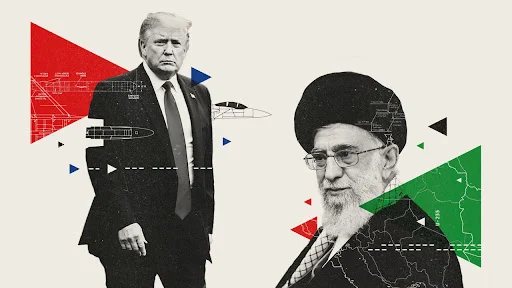The Nuclear Tinderbox Iran America and Israel’s High-Stakes Game of Atomic Chess
A Triad of Tension
The geopolitical rivalry between Iran, the United States, and Israel over nuclear capabilities is one of the most volatile conflicts of our time. With accusations, covert operations, sanctions, and threats of war, this high-stakes confrontation has global implications—from oil markets to regional stability and beyond. But what is Iran really doing with its nuclear program? Why are America and Israel so alarmed? And how does this affect the rest of the world?
Let’s dive deep into the atomic chessboard where every move could trigger a catastrophic checkmate.
Chapter 1: Iran’s Nuclear Ambitions – Peaceful Energy or Atomic Threat?
Iran has long claimed that its nuclear program is solely for peaceful purposes energy production and medical research. The country is a signatory to the Nuclear Non-Proliferation Treaty (NPT) and insists it has no intention of building a bomb.
However, Western intelligence agencies and the International Atomic Energy Agency (IAEA) have repeatedly found evidence suggesting otherwise:
Uranium Enrichment Beyond Civilian Needs Iran has enriched uranium up to 60% purity, just shy of the 90% needed for weapons-grade material.
Underground Facilities & Secrecy Sites like Fordo and Natanz are heavily fortified, raising suspicions of military dimensions.
Past Weaponization Studies Leaked documents (like the Nuclear Archive seized by Israel in 2018) suggest Iran had a structured nuclear weapons program until 2003.
Why Does Iran Want the Bomb?
Deterrence Against Enemies Fearing regime change (like Iraq or Libya), Iran may seek a nuclear shield.
Regional Dominance A bomb would cement Iran as the dominant power in the Middle East, countering Saudi Arabia and Israel.
Leverage in Diplomacy Nuclear capability gives Iran bargaining power against sanctions.
Chapter 2 America & Israel’s Red Lines – Stopping Iran at All Costs
Both the U.S. and Israel view a nuclear-armed Iran as an existential threat. Their strategies to prevent it include:
1. Economic Sanctions – The Financial Chokehold
The U.S. has imposed crippling sanctions, cutting Iran off from global trade and oil exports.
The 2015 JCPOA (Iran Nuclear Deal) temporarily eased sanctions in exchange for nuclear limits, but after Trump’s withdrawal in 2018, Iran resumed enrichment.
2. Covert Ops & Cyber Warfare – The Shadow War
Stuxnet (2010) A U.S.-Israeli cyberattack destroyed Iranian centrifuges.
Assassinations of Scientists Key figures like Mohsen Fakhrizadeh (2020) were killed, allegedly by Israel.
Sabotage Attacks Mysterious explosions at nuclear sites (Natanz, 2021) have slowed progress.
3. Military Threats – The Last Resort
Israel has repeatedly warned of preemptive strikes if diplomacy fails.
The U.S. maintains a all options are on the table. stance.
Chapter 3: Global Impact – What Happens If Iran Goes Nuclear?
1. Middle East Arms Race
Saudi Arabia, Turkey, Egypt may seek their own bombs, leading to a regional nuclear domino effect.
2. Oil Market Chaos
Military conflict could block the Strait of Hormuz, disrupting 20% of global oil supply and spiking prices.
3. Terrorist Proliferation Risk
If Iran shares nuclear tech with Hezbollah or Hamas, non-state actors could gain WMDs.
4. U.S.-China-Russia Power Play
Russia & China support Iran to counter U.S. influence, deepening Cold War-style divisions.
Conclusion Can This Atomic Standoff Be Resolved?
The Iran nuclear crisis is a ticking time bomb. While diplomacy (like reviving the JCPOA) offers hope, mistrust runs deep. If negotiations fail, the world could face:
A new nuclear-armed state (Iran)
A devastating regional war
Global economic shockwaves
The question isn’t just about whether Iran gets the bomb. it’s about whether the world can prevent a nuclear nightmare
What do you think? Should the West strike a deal with Iran, or take a harder stance? Let’s discuss in the comments!
IranNuclearProgram, USIsraelIranConflict, NuclearProliferation, JCPOA, MiddleEastTension, AtomicBomb, Geopolitics, GlobalSecurity




